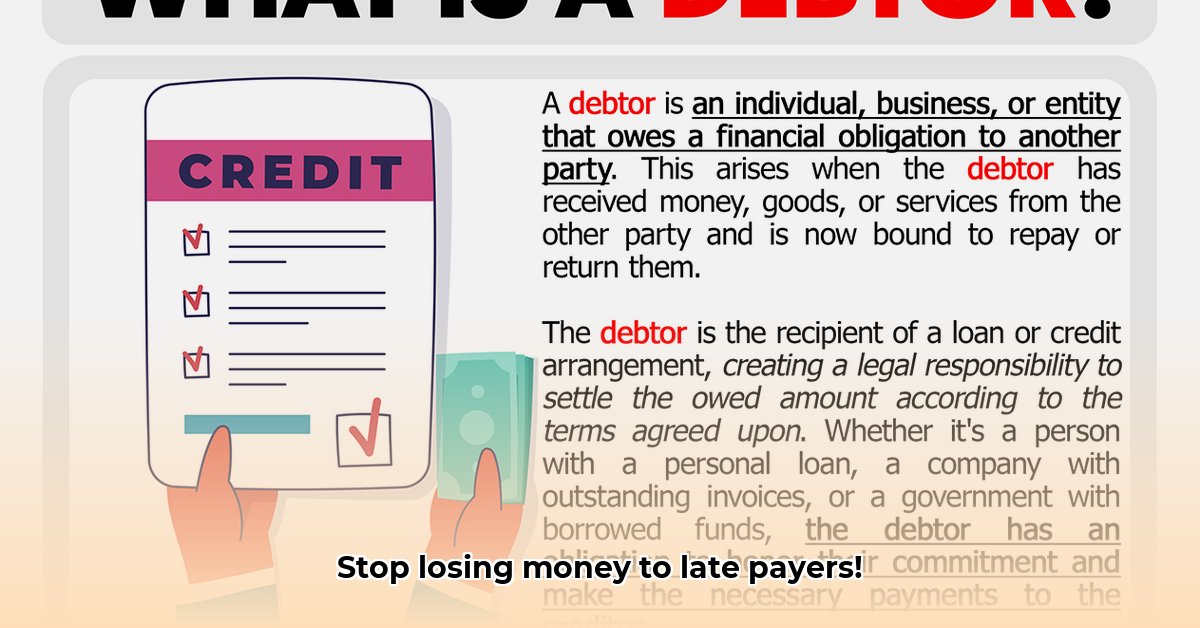
Understanding "outstanding debtors" is crucial for both personal and business finance. It simply refers to individuals or businesses that haven't paid their debts on time. This guide provides actionable strategies to manage debt effectively, minimizing risks and navigating legal considerations.
Understanding the Different Types of Debt
Debt isn't monolithic. Understanding its various forms is the first step towards effective management.
Short-Term Debt: Due within a year (e.g., credit card bills, short-term loans). Requires careful budgeting and cash flow management to avoid delinquency.
Long-Term Debt: Due over a year (e.g., mortgages, student loans). Requires long-term financial planning and consistent payments.
Secured Debt: Backed by collateral (e.g., mortgages, auto loans). Defaulting risks losing the asset securing the loan.
Unsecured Debt: No collateral (e.g., credit card debt, personal loans). Impacts credit score significantly if payments are missed.
Knowing these differences shapes your approach to debt management. A missed credit card payment carries different consequences than missing a mortgage payment; the former impacts your credit score, the latter might lead to foreclosure.
Your Credit Score: Your Financial Report Card
Your credit score is a crucial factor. Lenders use it to assess your creditworthiness. A high score translates to lower interest rates and easier access to credit. A low score leads to higher interest rates, reduced borrowing capacity, and potentially, difficulty securing loans. For businesses, a poor credit score limits expansion opportunities. How important is maintaining a good credit score? Extremely; it's the foundation of your financial health.
Managing Outstanding Debt: Actionable Strategies
Effective debt management involves different strategies for individuals and businesses.
For Individuals:
Create a Budget: Track income and expenses meticulously. Identify areas for savings. This foundational step is often overlooked but crucial for long-term financial health.
Prioritize Debt: Employ the "debt avalanche" (highest interest rate first) or "debt snowball" (smallest debt first) method to systematically pay down debt.
Communicate with Creditors: Contact creditors if you're struggling. They may offer solutions like debt consolidation or payment plans.
Improve Your Credit Score: Consistent on-time payments and keeping credit card balances low are key to improving your score.
Seek Professional Help: If overwhelmed, consult a credit counselor or debt management program for personalized guidance.
For Businesses:
Master Cash Flow: Optimize invoicing, control expenses, and diligently pursue outstanding payments. Cash flow is the lifeblood of any business.
Monitor Business Credit: Regularly review your business credit reports to address any issues proactively.
Diversify Funding: Don't rely solely on one funding source. Explore multiple options to manage risk.
Financial Forecasting: Project future cash flows to anticipate potential problems and prepare contingency plans.
Debt Restructuring: If necessary, negotiate with lenders to modify repayment terms.
Assessing and Reducing Your Risks: A Risk Assessment Matrix
Different debts carry varying levels of risk. A proactive approach is vital.
| Debt Type | Risk Level | Mitigation Strategies |
|---|---|---|
| Credit Cards | Medium | Responsible spending, punctual payments. |
| Mortgages | High | Stable income, thorough understanding of loan terms before signing. |
| Business Loans | Medium-High | Excellent credit history, favorable loan terms negotiation. |
| Corporate Bonds | Low-High (rating dependent) | Diversified investments, thorough issuer research, awareness of economic factors. |
Proactive planning and risk mitigation strategies are key to financial stability.
Legal and Regulatory Considerations
Understanding relevant laws is imperative. The Fair Debt Collection Practices Act (FDCPA) protects consumers from abusive collection practices in the US. Businesses must adhere to various financial regulations. Ignorance of these laws can lead to serious consequences.
Conclusion
Effective debt management is about understanding the different types of debt, your credit score's impact, and proactive strategies to minimize risks. Whether you're an individual or a business, taking control of your finances is key to building a secure financial future.